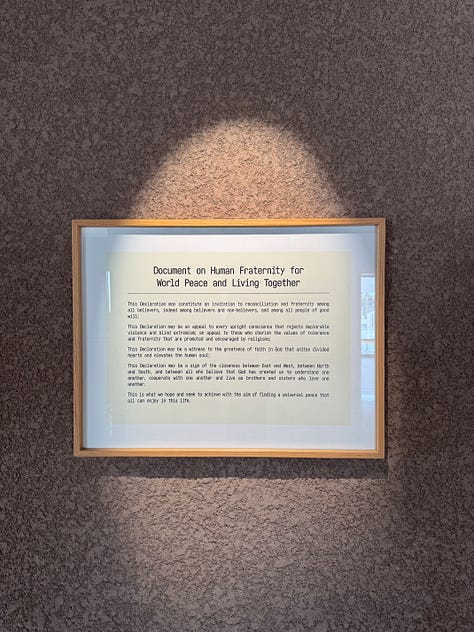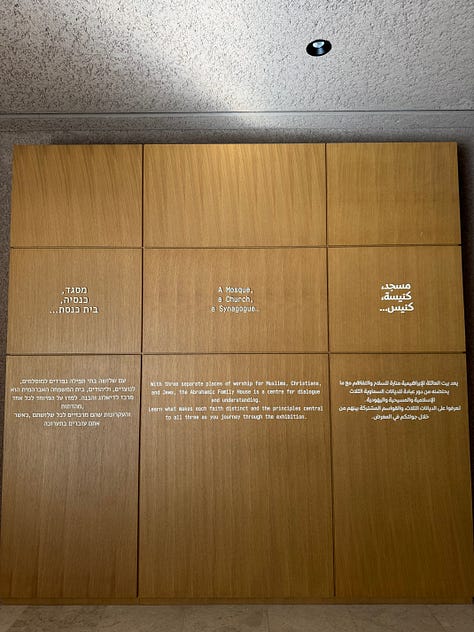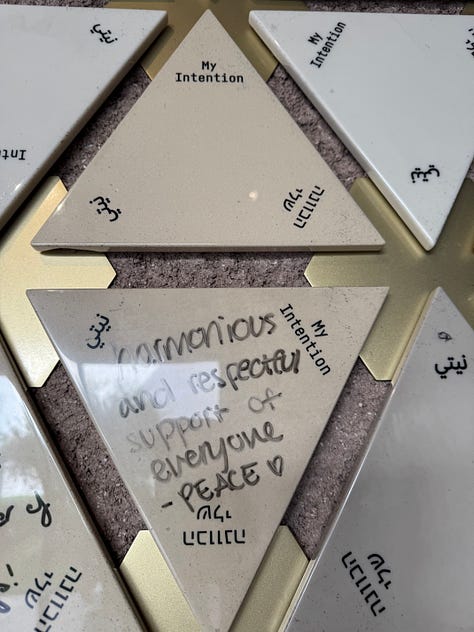Middle East Trip Overview
I recently got back from a trip to the Middle East with my partner and honestly… it was life-changing. We visited Dubai, Abu Dhabi, Muscat, and Istanbul — and the experience completely reshaped how I think about spirituality, religion, and faith.
We were incredibly lucky to have a friend guide us through the region. They generously took the time to share historical context, local insight, and cultural perspective, and I learned more in those few weeks than I have in years. It gave me a deeper appreciation for how complex, beautiful, and powerful belief systems can be — especially when you engage with them firsthand.
Here are some reflections I wanted to share ⬇️
On Religion and Power
Growing up, I was often turned off by religion. The conflict I saw in the world, often carried out in its name, felt hypocritical — especially when so many religions speak about love, compassion, and peace. I couldn’t understand why people couldn’t just believe what they believed, while also accepting others’ right to do the same.
This trip helped me realize that while religion can be used to divide, it can also deeply unite. The conflicts we often see portrayed in the media are, in many cases, not about faith itself — but about how those in power manipulate faith to serve political, economic, or ideological agendas.
There are extremist groups, yes — but the vast majority of people I met were kind, peaceful, and devout in ways that had nothing to do with violence or conversion. Faith was something deeply personal, grounded in daily practice, community, and reverence — not power or domination.
It reminded me that, like many things in life, religion is not black and white. Just because people share a belief system doesn’t mean they share the same views on how it should be interpreted or lived out. It’s often the structures around religion — not the religion itself — that cause harm.
Visiting the Abrahamic Family House
One of the most moving moments of the trip was visiting the Abrahamic Family House in Abu Dhabi. It's a beautiful space where a church, synagogue, and mosque exist side by side — a physical representation of coexistence and mutual respect among the three Abrahamic religions.



Inside, powerful exhibits explore both the commonalities and distinctions between the faiths, and throughout, the message was clear: difference doesn’t have to mean division.
After speaking with our friend (who is Muslim) and several mosque volunteers, I was struck by how deeply respectful and accepting they were of people from other religions. There was no attempt to convert or “correct” anyone’s beliefs — only a desire to share, understand, and connect.
Hearing Muslims refer to Christians and Jews as “people of the book” and as brothers and sisters brought me to tears. So much of what I’d absorbed from media over the years centered on conflict and division, but here, I saw connection and harmony in action.
Reframing My Relationship With Faith
Growing up, I loosely followed Christian teachings because it was what my family believed. I prayed because I was told to, and tried to be “good” because that’s what was expected.
As I got older, the contradictions, unanswered questions, and institutional aspects of religion made me pull away. I labeled myself agnostic — not a disbeliever, but someone who didn’t quite know what they believed either.
But this trip opened something up in me. Learning more about Islam — and how Muslims, Jews, and Christians all believe in the same God, just through different expressions — made me realize that I do believe in something greater. I may not know exactly what it looks like, and I’m okay with that. But I believe in goodness, in a higher power, and in trying to live a meaningful, values-driven life.
One thing I found especially thought-provoking was learning about Islamic rituals — like praying five times a day or fasting during Ramadan. While those acts are deeply spiritual, they also reflect the idea that what we do in this life matters in the next. It made me reflect on the role that structure, ritual, and accountability play in guiding human behavior — and how different belief systems offer frameworks for striving to be better.
Final Thoughts
This trip helped me unlearn some of the assumptions and biases I didn’t even realize I was carrying — and invited me to see faith, culture, and humanity through a much more expansive lens.
I’m still processing everything I saw and felt. But I know I’m coming back with a deeper sense of gratitude — for the ability to travel, to learn from others, and to reconnect with parts of myself I’d long pushed aside.
If you’ve ever felt confused or disconnected from faith, I hope some of this resonates. And if you ever get the chance to travel to this part of the world, I can’t recommend it enough. Go with an open mind, and I promise you’ll leave with an open heart.






I loved this read. I have a complicated relationship with religion myself. Or rather with the church as an institute! I was made orthodox, and of all Christian brunches I think it’s the least modernized one. All I remember growing up is feeling fear in churches or around priests!! And I know for a fact that the Russian pope books a private jet when he needs to fly somewhere. My team flew that asshole.